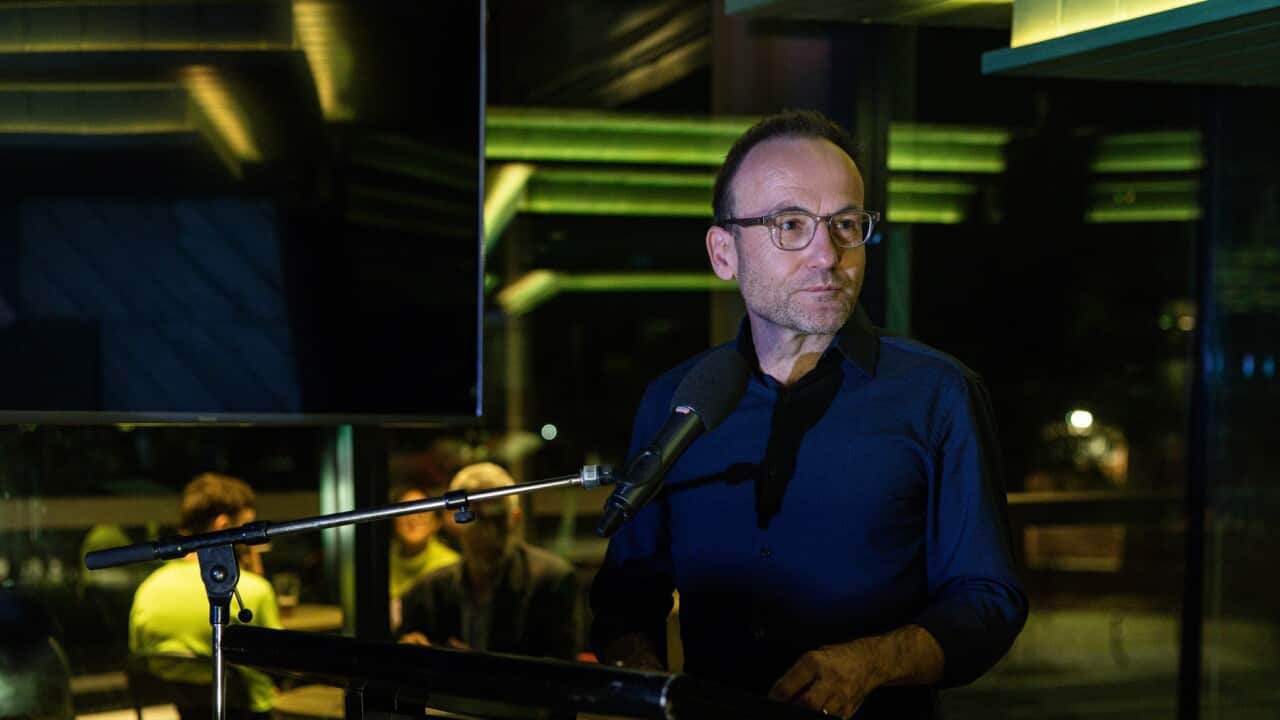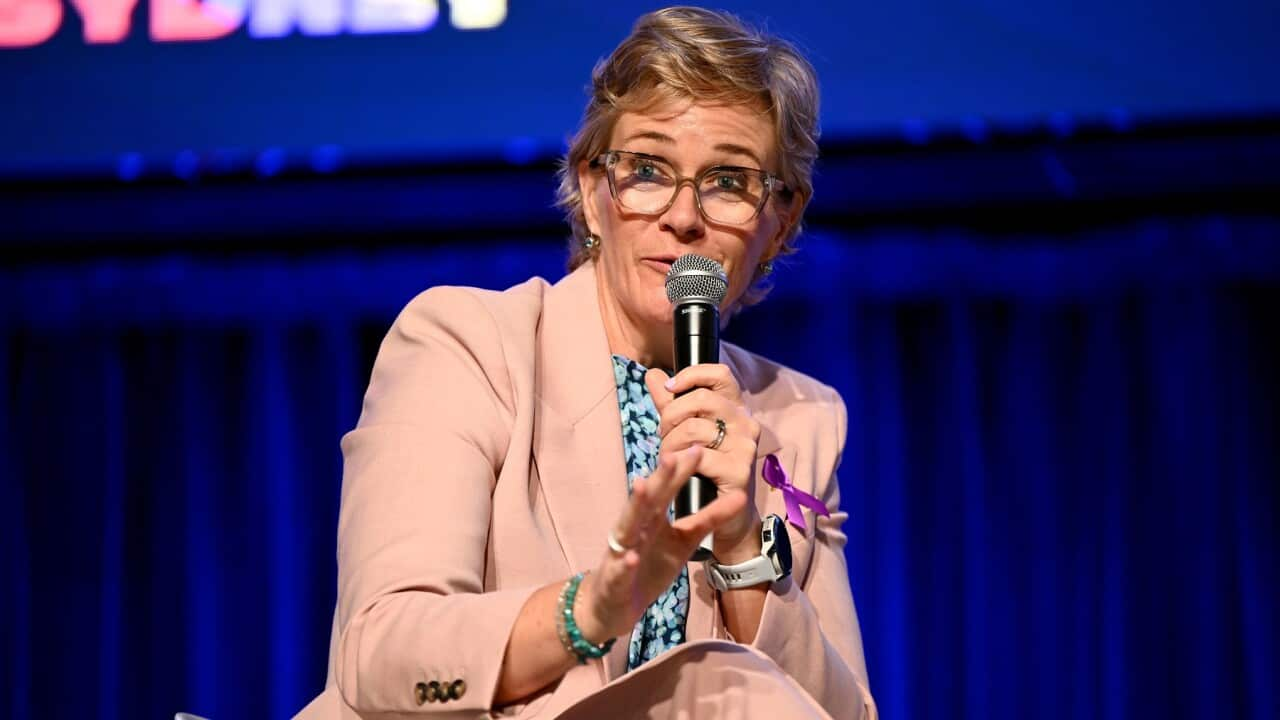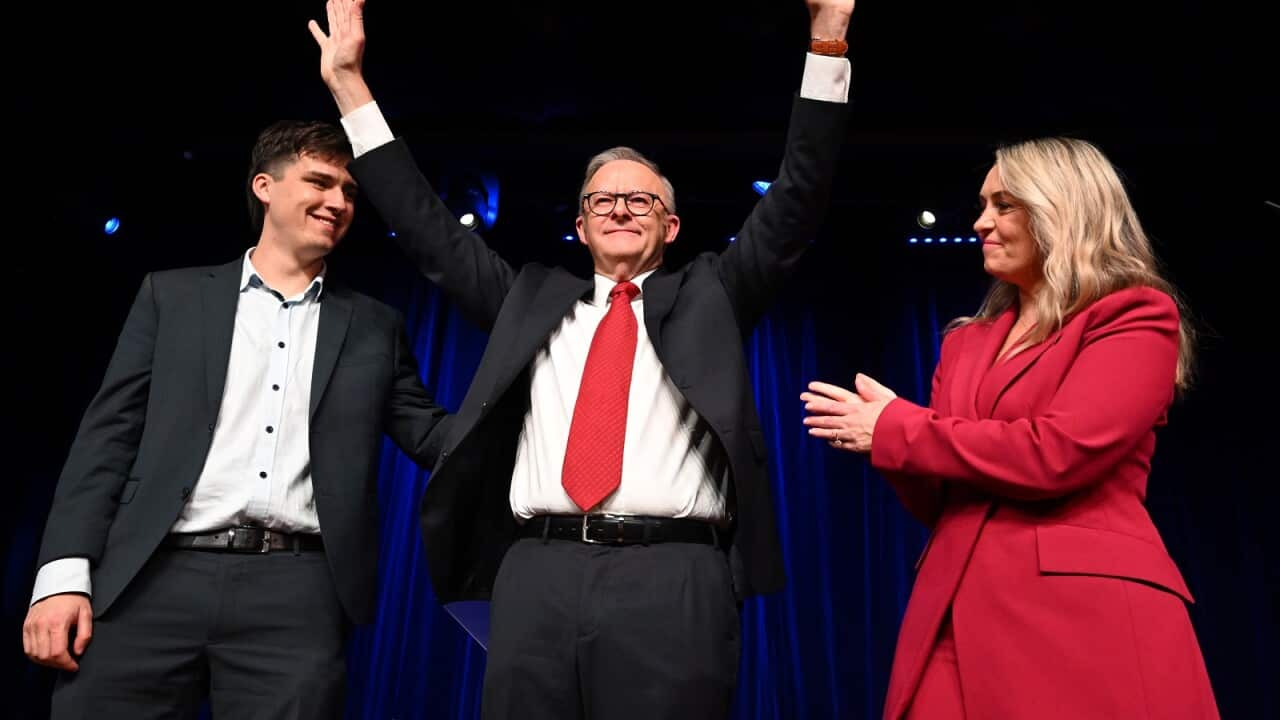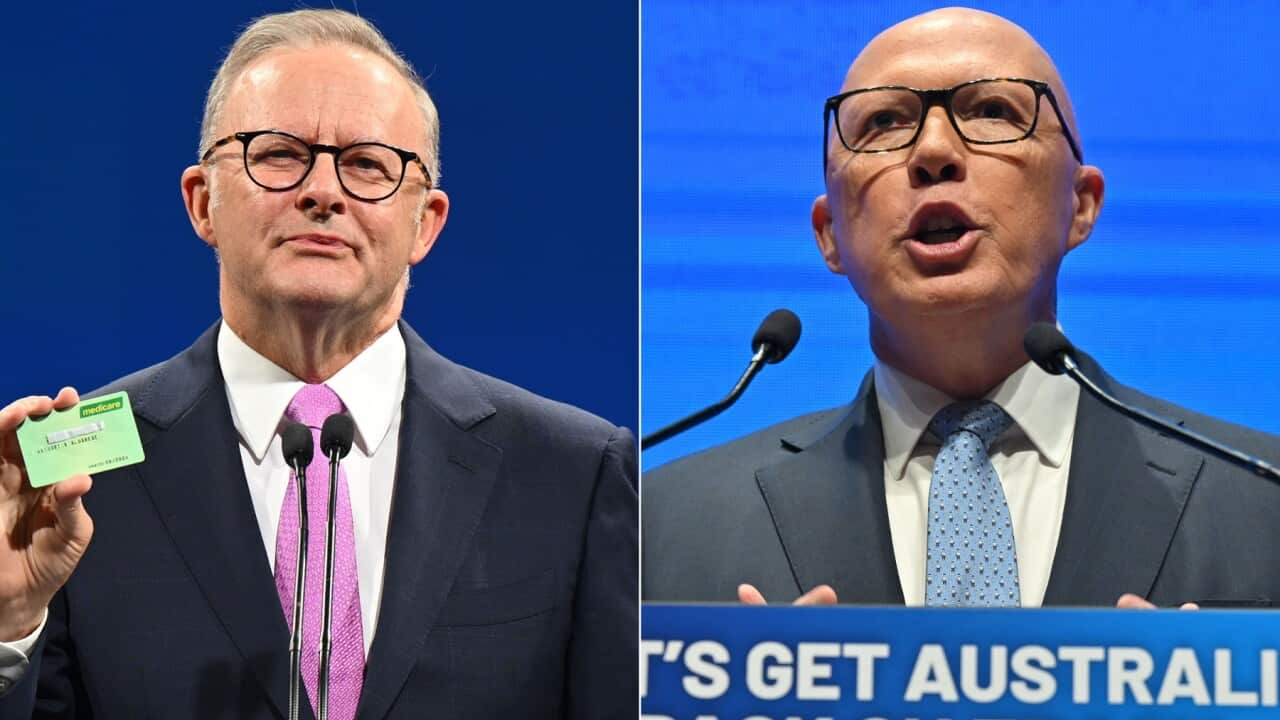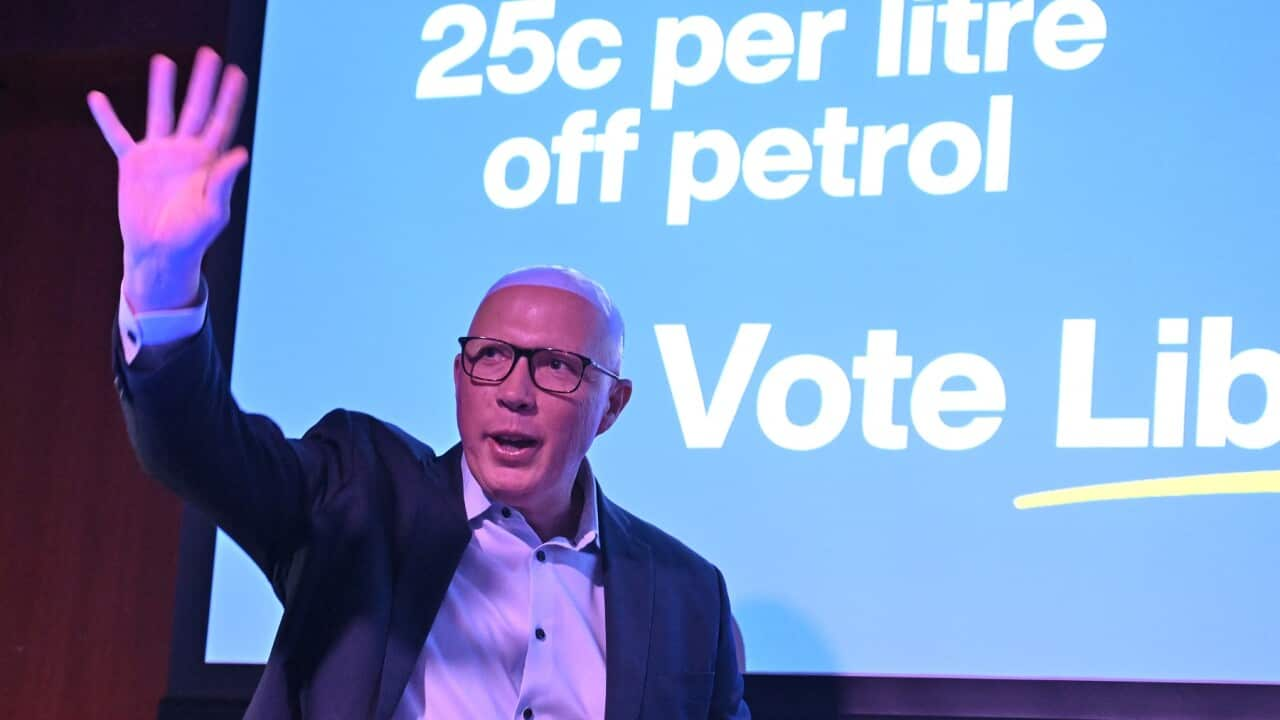TRANSCRIPT
As the Labor Party celebrates a landslide election victory, the Greens are counting the cost.
The party's national vote has broadly held up, but a number of three-corner contests have not gone their way.
The votes the Liberal Party lost have tended to be picked up by Labor, instead of the Greens.
The minor party has lost two Queensland lower-house seats, and several other races still hang in the balance.
As counting continues, Greens leader Adam Bandt acknowledges it's not the outcome he wanted, but he says it's still a positive result for his party.
"The Greens have achieved a record senate vote. We're nudging 14 per cent based on where the county is at the moment, and we'll see where it gets to at the end, and I think that's a reflection of, now, the true Greens level of support in Australia."
The national figure is still bouncing around - it's just under 12 per cent as we record - but the bigger issue is this support has not necessarily translated to lower house seats.
The party had been hoping to build on the base of four M-Ps who were elected to the last parliament in 2022.
Mr Bandt, who represents the seat of Melbourne, was joined by three Greens M-Ps from metropolitan Queensland.
So far they've lost two of those seats, Griffith and Brisbane, partly due to the collapse in the Liberal vote, which meant preferences flowed through to Labor.
But the Greens candidates have seen swings against them as well.
Mr Bandt says he's hopeful of offsetting those losses by winning new seats.
"We expect that we'll have between one and four seats in the parliament once the final votes are counted."
Psephologists say the party is likely to wind up at the lower end of that range.
Ben Raue is an election analyst for the Tally Room podcast.
"Look, I think they're probably the favourites to win Melbourne and Ryan, but the preference counts in those seats haven't been done quite enough yet to be sure about that."
Ryan is the third of those Queensland metropolitan seats the party picked up in 2022.
On Monday [[05 May]], Greens candidate Elizabeth Watson Brown was leading on preferences, despite a slight swing against her.
Melbourne is held by Mr Bandt, who's locked in a tight race against Labor's Sarah Witty.
He's had a significant swing against him as well, but says he's confident of being returned.
Ben Raue says a redistribution of the seat's boundaries hasn't helped Mr Bandt.
"Okay, so part of the story here is that he's had a redistribution, and some of his best suburbs have been moved into the neighbouring seat of Wills, and he's gained some suburbs on the south side of the Yarra River, which, you know, are friendly areas for the Greens, but he doesn't have that big personal base of support there from representing those areas. So I do think that is a big part of it. But, you know, even then, if he'd stayed steady he would have still got an elected but there has been a swing to Labor you know his vote is down, even after adjusting for the redistribution."
Mr Bandt contends that the Greens are performing well in areas he used to represent that are now part of Wills.
While counting continues, psephologist Shaun Ratcliff says the path to victory in that seat would be very narrow.
"It's looking, I think it's unlikely now the Greens pick up Wills."
Mr Ratcliff is the Principle at Accent Research, which tracks the election.
He says it's true the Greens have had a swing towards them in Wills, but they're leaking support in most of their key target seats.
"It's important to note that it looks like the Greens' primary vote went backwards in Melbourne, it went backwards in Macnamara, it went backwards in Griffith, it went backwards in Ryan it went backwards in Brisbane, right? So they're blaming Liberal preferences, but their own, their primary vote dropped in most of these seats."
Mr Ratcliff says this represents a shift on the past decade.
"One of the things they've been doing really well for about 10 years, or probably 15 years now, was they hadn't been growing their vote a lot, it had been going up a little bit over time, but it'd been becoming a lot more concentrated and that was making them more and more competitive in individual house of representative seats. So obviously, picked up Melbourne in 2010, that was the start of it, and then at the last election -- at state levels I should say, state level they've been picking up Lower House seats all over the place - and then last federal election they picked up three seats in Brisbane. So this is reversed, though, some of that process. "
Ben Raue agrees it's an issue the party will have to face.
"The Greens vote is roughly steady, but it has gone down in their heartland areas and they've done quite well in suburban areas where traditionally the Greens wouldn't go as well. They seem to have had some really good results in areas that have a big Muslim population, which I think is linked to the war in Gaza."
It's a trend election analysts started picking up in state and council elections last year, which appears to have continued in the federal election.
"And it's actually kind of bad news for the Greens in terms of their support in the lower house because while the national vote is roughly steady, it's being distributed in an inefficient way. I don't think the Greens are close to winning those middle suburban multicultural seats where they've gained a swing, but while they're doing that, they're losing votes elsewhere. And I don't think it's necessarily that they're losing them because they're gaining votes elsewhere. I think two different things are going on here, but I think it would be a danger for the Greens to pat themselves on the back and say, well, our vote is steady when they are losing votes in the places where they can actually get people elected."
This comes against a national backdrop where lost Liberal votes have largely flowed to Labor, instead of the Greens.
In the last term, Labor consistently accused the Greens of blocking legislation - portraying them as a party that makes the perfect the enemy of the good.
The Coalition, meanwhile, labeled the minor party antisemitic because of its support for Palestine during Israel's war on Gaza.
Right-wing lobby groups like Advance Australia also centred a concerted campaign against the Greens.
But analyst Simon Welsh says it's the perception of the Greens as blockers which has cut through.
He's a director at the Redbridge Group.
"We find in groups when you test Greens policy without labelling Greens policy, it actually tests better than it does when you label it Green. So there's something going on with the Greens' brand and it's this, it's this kind of perception of activism and the negativity towards Labor and Labor agendas, when Labor are in government. We see it all the time in the focus groups keeps coming up as reasons why these more middle-aged kind of progressive voters are drifting away from them in in these territories that they've been holding."
Despite these political setbacks, Ben Raue points out the Greens have had a steady result, provided they hold onto the seats of Melbourne and Ryan.
"I think they're likely to win those two seats. If they do that, they will have achieved their second best ever result in the House of Representatives. That's worth emphasising at the start. It was amazing in 2022 that the Greens won those three seats in Brisbane, and I think probably expecting them to hold all those seats to even go higher would've been a bit of a heroic assumption. That was a very good result."
The Greens also appear set to hold the balance of power - after all of their senators were re-elected.
It's likely Labor and the Greens will be able to vote as a block to pass legislation through the upper house.
In some circumstances, that would give the Greens a seat at the table in a parliament Labor will largely dominate.
For his part, Adam Bandt says the path is now clear for progressive reform.
"With the Greens in sole balance of power in the senate - at the moment - the government can't blame other individual senators for not being able to get things through. The only barrier to getting dental into Medicare now and passing it through the parliament is Labor. The only barrier, the only obstacle to making childcare free is Labor. The only obstacle to stopping new coal and gas mines from being opened is Labor. We stand ready in the Senate to make this the most progressive parliament that Australia has seen."
